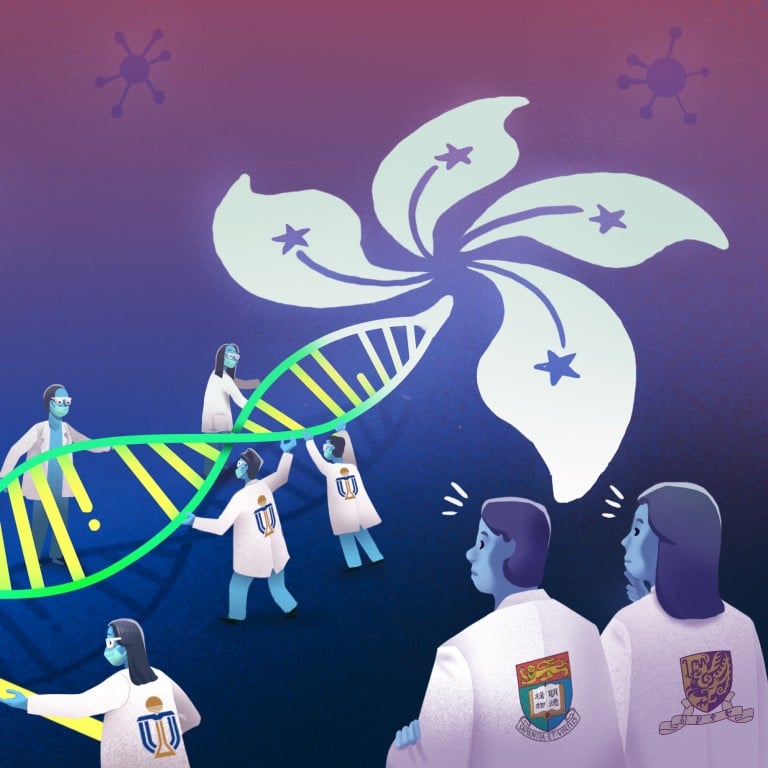
Hong Kong’s ambitions of becoming an international innovation and biomedical hub received a boost with news that the city could have a third medical school.
The Hong Kong University of Science and Technology (HKUST) is working on a proposal for an American-style medical school with a stronger emphasis on research and development.
While some scientists and academics said the move could prove a catalyst for developing the city into a biomedical hub, heavyweights in medical education questioned how far the new school would go in fulfilling the basic responsibility of producing doctors.
News of the possible new medical school surfaced in April in an unconfirmed media report citing anonymous sources, but more details have emerged recently.
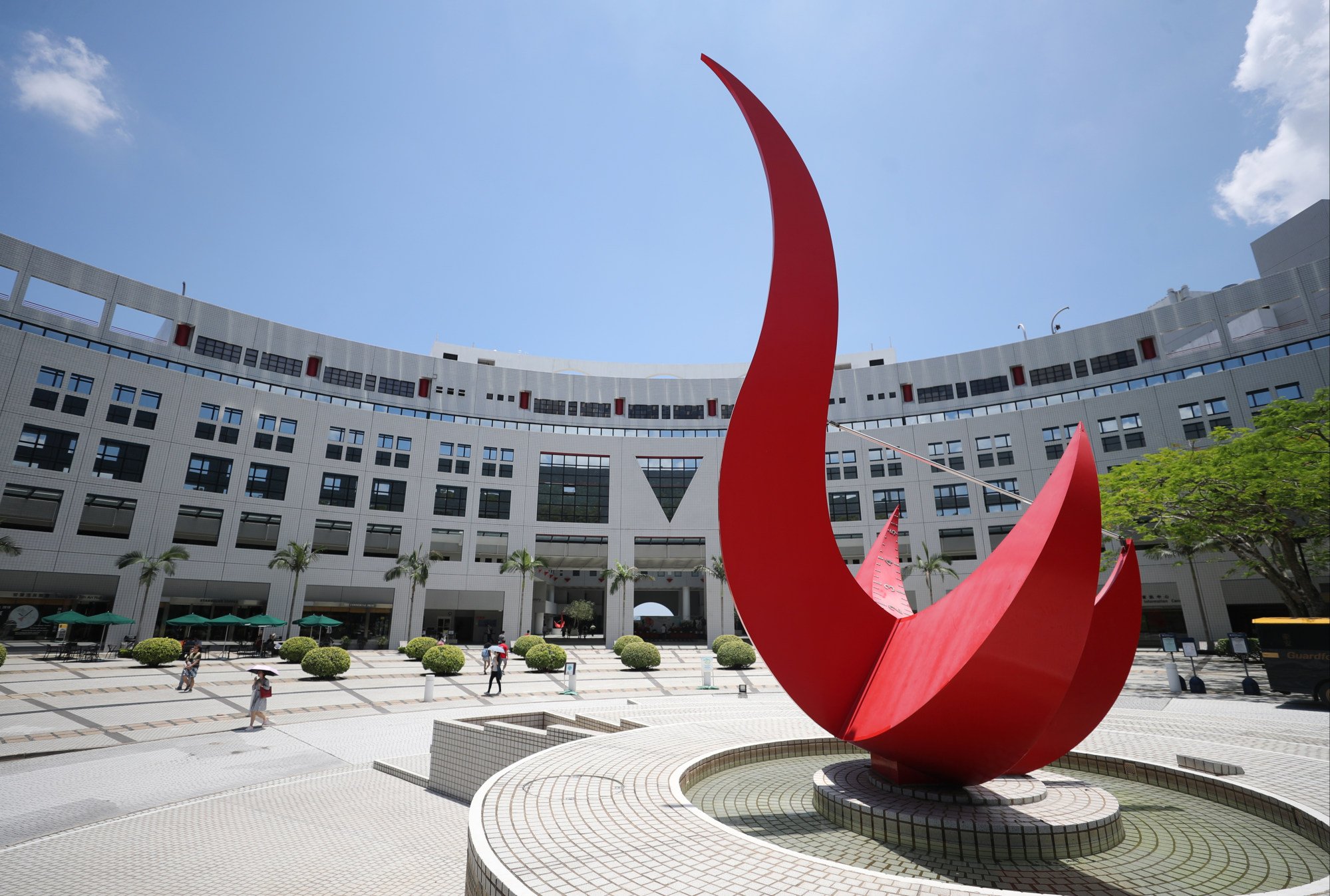
HKUST has proposed setting up a third medical school in the city. Photo: Winson Wong
Lawmakers attending a briefing at HKUST last month revealed that it was formalising the proposal, with a preliminary plan to start with 50 students in two to three years’ time, and work towards an annual intake of 200.
Lawmaker Rock Chen Chung-nin, an HKUST council member, told the Post that the governing body had already approved the plan in principle, and details of student recruitment, curriculum design and funding were being ironed out.
Chen said the proposal grew from the university’s desire to build on its strengths in science and research. A medical school would help produce talent for developing biomedicine and medical innovation.
Hong Kong already has established medical schools at the University of Hong Kong (HKU) and Chinese University (CUHK), but Chen said HKUST hoped to provide a different kind of medical education.
It was considering the graduate school model similar to that in the United States, where students must already have a bachelor’s degree before starting their medical studies. Chen said it had not ruled out offering undergraduate medical programmes.
In terms of curriculum, the school would focus more on research related to innovation and technology, while still incorporating clinical training, he added.
A source said HKUST was also exploring partnering with an overseas university for the medical school. Its executive MBA programme, for example, is run jointly with Northwestern University in the US.
In a reply to the Post, HKUST said it strove to establish a school to address Hong Kong’s needs for additional manpower in the medical field and enhance the city’s research capabilities.
The university added that the one being planned would be a graduate-entry school which would focus on training research-minded doctors, without clarifying whether undergraduate programmes would be offered.
“We are currently in the planning process and engaging with relevant stakeholders to develop a robust blueprint,” the university said, adding that more details would be shared with the public at a later stage.
The university said its medical school would complement the city’s two existing ones.
“We are ready to contribute our part to drive a regime of strategic use of innovation and technology in medical training that is conducive to Hong Kong’s pursuit of becoming an international biomedical hub,” it said.
The university said it believed that by leveraging areas such as artificial intelligence, sensors and genomics, new methods could be devised for medical diagnosis and treatment.
A Health Bureau spokesman said authorities had noted the “plan to offer postgraduate medical programmes” and that it was still in its preliminary stage.
“We will continue to maintain communication with HKUST and further consider the detailed proposal when submitted by HKUST,” he said.
Looking for doctors who do research
Life and health technology is an area the government has proposed focusing on to help the city align with the latest national five-year plan, under which Hong Kong is positioned as an international innovation and technology centre.
In his policy address last month, Chief Executive John Lee Ka-chiu unveiled a blueprint for the city to have its own drug regulatory authority. To attract more clinical trials, an institute would be set up in the Hetao Shenzhen-Hong Kong Science and Technology Innovation Cooperation Zone next year.
Key players in the biotechnology industry said a third medical school could supply more talent for these developments.
Lo Yuk-lam, president of the Hong Kong Bio-Med Innotech Association, said the HKUST model could produce doctors who would not only treat patients, but also had research skills to support the biomedical industry.
“If you only have a PhD, you will not understand patients’ needs,” he said. “Only by combining it with clinical research will you understand patients’ needs.”
Lo said a biomedical industry needed talent such as HKU’s leading infectious disease expert, Professor Yuen Kwok-yung, and CUHK’s top chemical pathologist, Professor Dennis Lo Yuk-ming.
Biotechnology scientist Professor Wong Yuk-shan, a former vice-president of HKUST, said the US model of medical education could produce well-rounded professionals.
“People applying for medical programmes under the US system do not necessarily have to study medical-related areas at the undergraduate level,” he said. “Some study biological science or biochemistry, psychology or even engineering.”
Ricky Chiu Yin-to, CEO and founder of Phase Scientific International, a Hong Kong biotech company which made Covid-19 testing products during the pandemic, said the city lacked doctors to do clinical research and scientists who could develop biotechnology and healthcare technology.
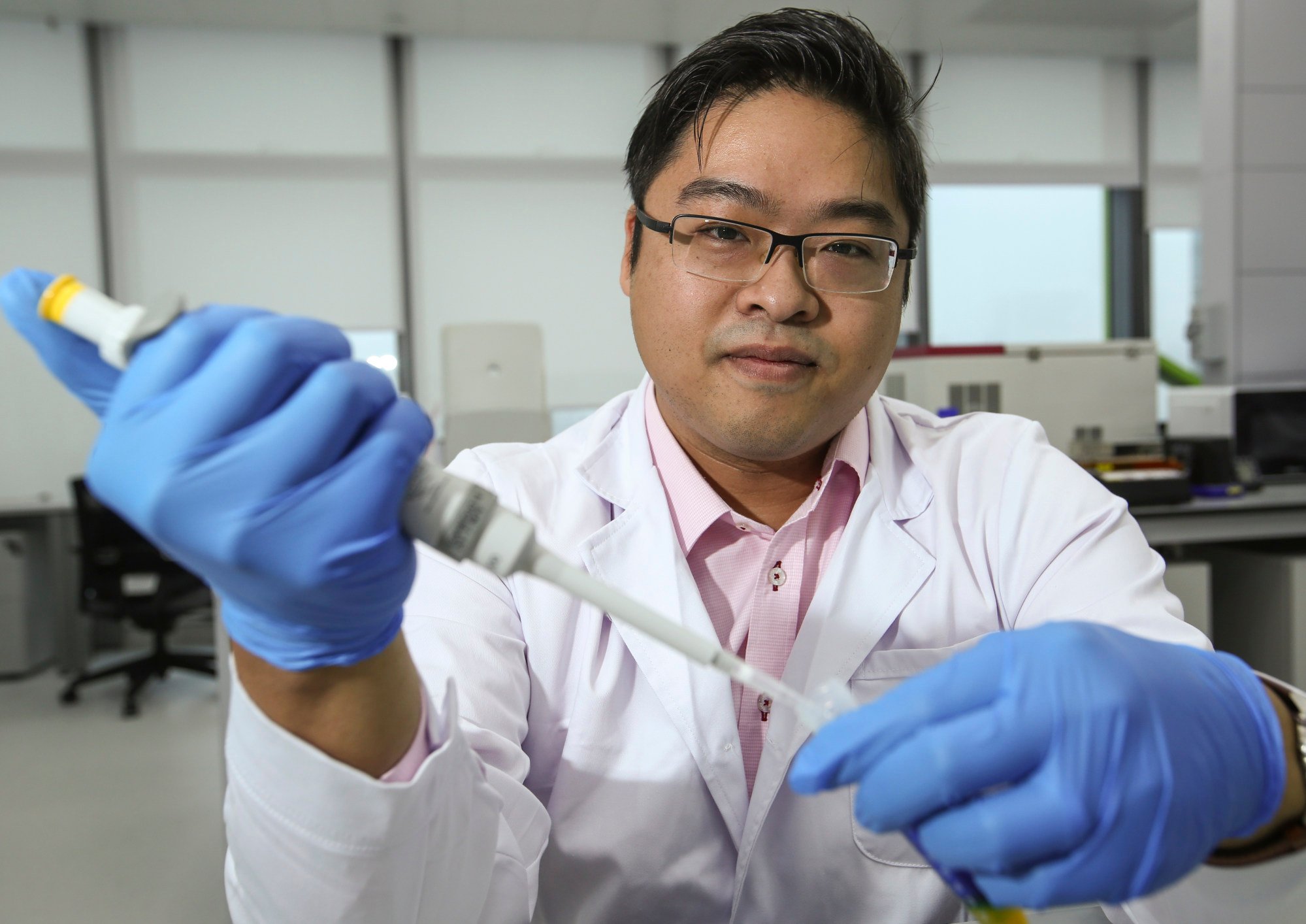
Ricky Chiu, CEO and founder of Phase Scientific International, says the city lacks doctors to do clinical research. Photo: Edmond So
An adjunct associate professor at CUHK’s school of biomedical sciences, Chiu said doctors in the city spent most of their time caring for patients while those in mainland China and elsewhere made time to carry out research on drugs and improve their medical skills.
“It is impossible to develop new drugs or treatments without the participation of researchers with a medical background and clinical experience, who know the needs of patients,” he said.
Nurturing more local talent would not only benefit companies in the city, but also attract more overseas enterprises to Hong Kong.
But he added: “The school has to collaborate with the industry because even a university as good as HKUST cannot manufacture drugs itself.”
HKUST already has a record of collaboration with the industry. It said close to 30 per cent of patents from the university’s basic research findings had been licensed to the industry. At the same time, nearly 30 per cent of its active patents were in the biotechnology, neuroscience, ageing and healthcare sectors.
According to HKU, its medical faculty enrolled 878 taught postgraduate students and 866 research postgraduate ones in 2021-22.
CUHK said that about 1,000 taught and research postgraduate students graduated from its medical faculty in 2022.
The figures from both universities included students from schools specialising in disciplines such as medicine, public health, biomedical sciences, nursing, traditional Chinese medicine and pharmacy.
Will a new school ease the doctor shortage?
Aside from the impact on biomedical research, a question being asked is whether the new school would help ease the staff shortage in Hong Kong’s overburdened public healthcare system.
The Health Bureau told the Post it was essential that any new medical training programme increase the supply of doctors to meet a rising demand for healthcare services, especially with the city’s rapidly ageing population.
So far, the government has raised the quota for medical students at HKU and CUHK, and is also trying to woo more foreign-trained doctors.
The annual medical student intake more than doubled over the past 18 years, from 250 in the 2005-06 academic year to 590 in 2022-23.
Last year, the government opened a “special registration” pathway for medical graduates from 100 recognised overseas and mainland programmes to gain full registration without taking a licensing exam, if they met certain criteria.
The shortage of doctors could be resolved by allowing more students at the two medical schools and building a third, but Dr Lam Ching-choi, a member of the city’s top decision-making Executive Council, had his doubts.
“It takes years of preparation to open a medical school, and a long time for students to complete their medical degrees,” he said.
He estimated it would take at least 10 years to see the first batch of graduates from the new school.
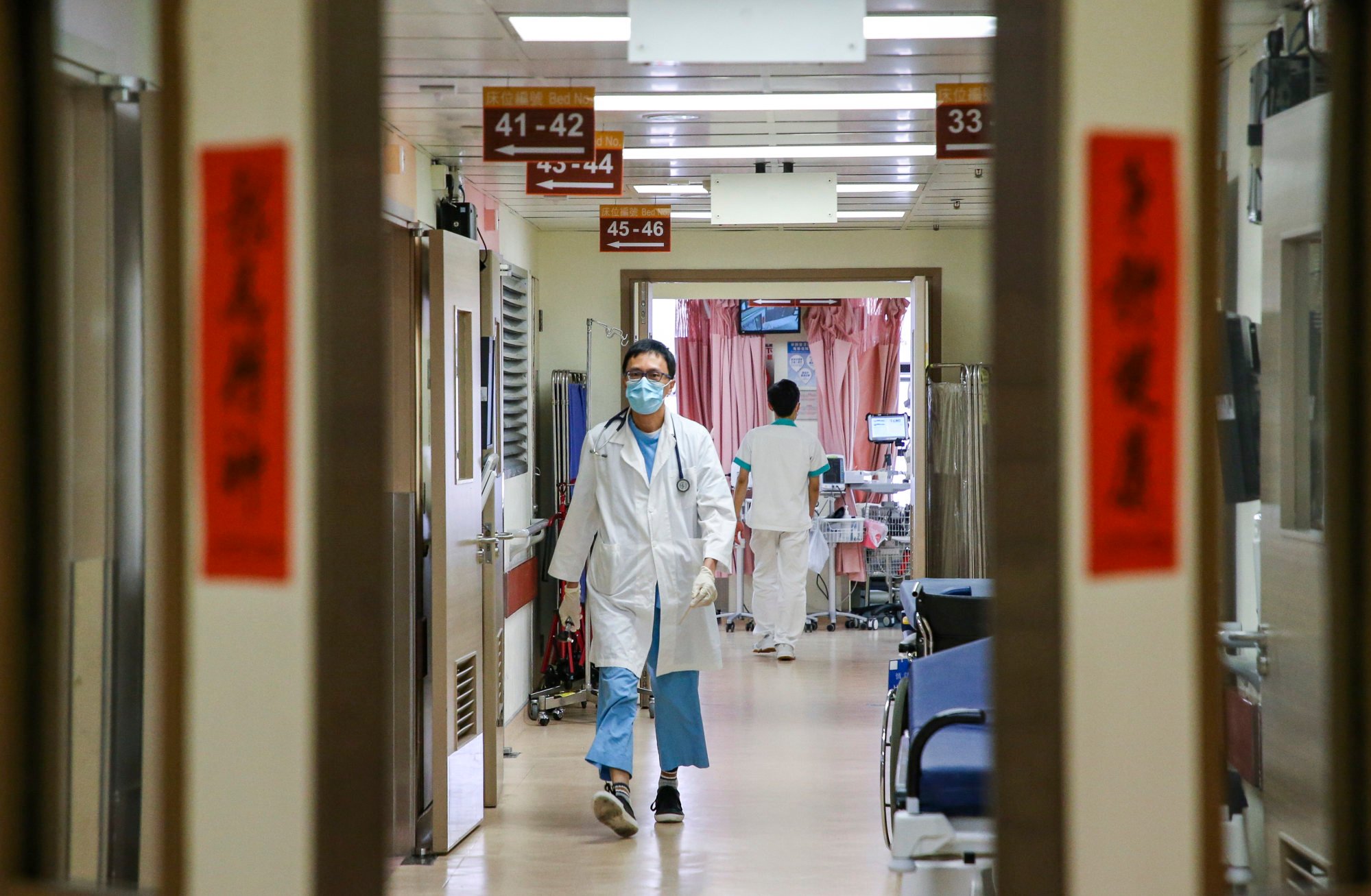
Authorities earlier launched a “special registration” pathway for medical graduates from 100 recognised overseas and mainland programmes in an effort to ease a shortage of doctors in the city. Photo: Felix Wong
A veteran medical professor, who preferred to be anonymous, said a more effective solution would be to allow the city’s two medical schools to take in more students.
“You don’t need to set up everything just for the sake of adding a few dozen students,” he said, noting that both existing schools had the foundations in place to increase capacity.
Hong Kong’s regional rival Singapore already has three medical schools, and Duke-NUS, a partnership between Duke University in the US and the National University of Singapore, is a graduate medical school.
Its goal was not only to produce more doctors, but also to boost biomedical research, playing a complementary role for the other two medical schools, said former CUHK president Professor Joseph Sung Jao-yiu, who moved to Singapore in 2021 to head the Lee Kong Chian School of Medicine at Nanyang Technological University (NTU).
While a third medical school could help produce more doctors for Hong Kong, he warned that the effect could be limited if it also aimed to train them for research.
“You may have trained 100 doctors but some end up doing biomedical research instead of dedicating themselves to being health providers,” he said. “Do we then have enough doctors to fulfil the current service demand?”
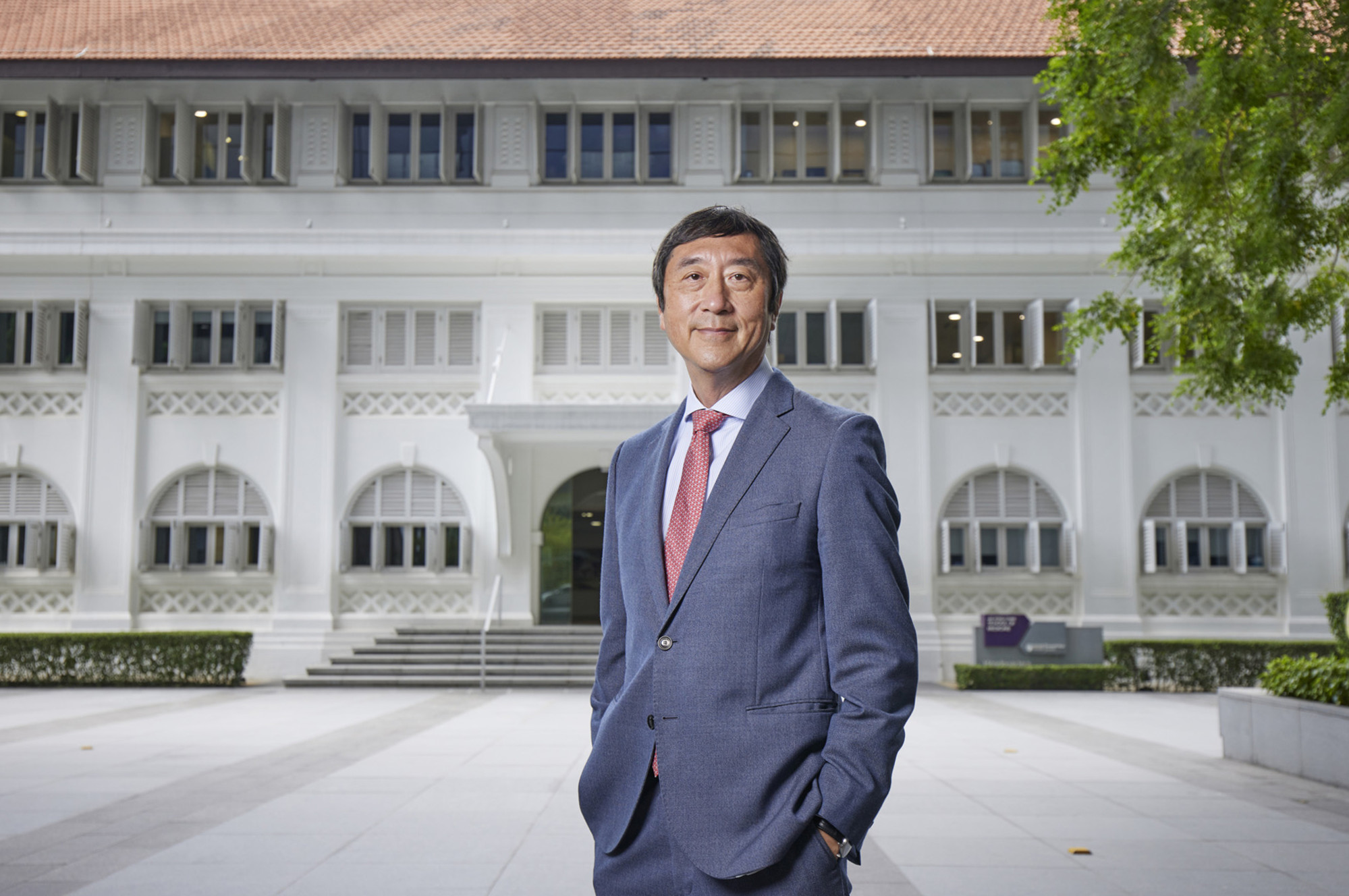
Professor Joseph Sung says that a third medical school in Hong Kong could boost the number of doctors, but its impact may be limited if it also focuses on research training. Photo: Nanyang Technological University
He agreed that a medical school focused on research would strengthen Hong Kong as a biomedical hub, but noted that biomedical research was “a high-risk and long-term investment” because its inventions would affect people’s lives.
“It is different from developing an app where you can just opt for another version if one version does not work,” he said.
Citing the experience at NTU’s 12-year-old medical school, Sung said it spent much of the initial years ensuring that the curriculum and graduates met international standards.
“A stepwise approach would be wise to first establish a quality medical curriculum before moving on to biomedical research,” he said.
Fears of poaching amid faculty crunch
The medical professor who spoke on condition of anonymity raised the issue of manpower and resources needed to start a medical school.
He was concerned that a new school might further stretch the teaching manpower, when recruitment was already difficult.
“In all these years, the two medical schools have not been able to hire enough teachers,” he said. “With the third coming up, who is going to teach the students?”
His worry was that the new school would end up poaching staff from the other two.
“It would be very difficult if 10 per cent of our manpower was taken away,” he said.
He said it was hard to recruit faculty locally and overseas, especially those needed for clinical training.
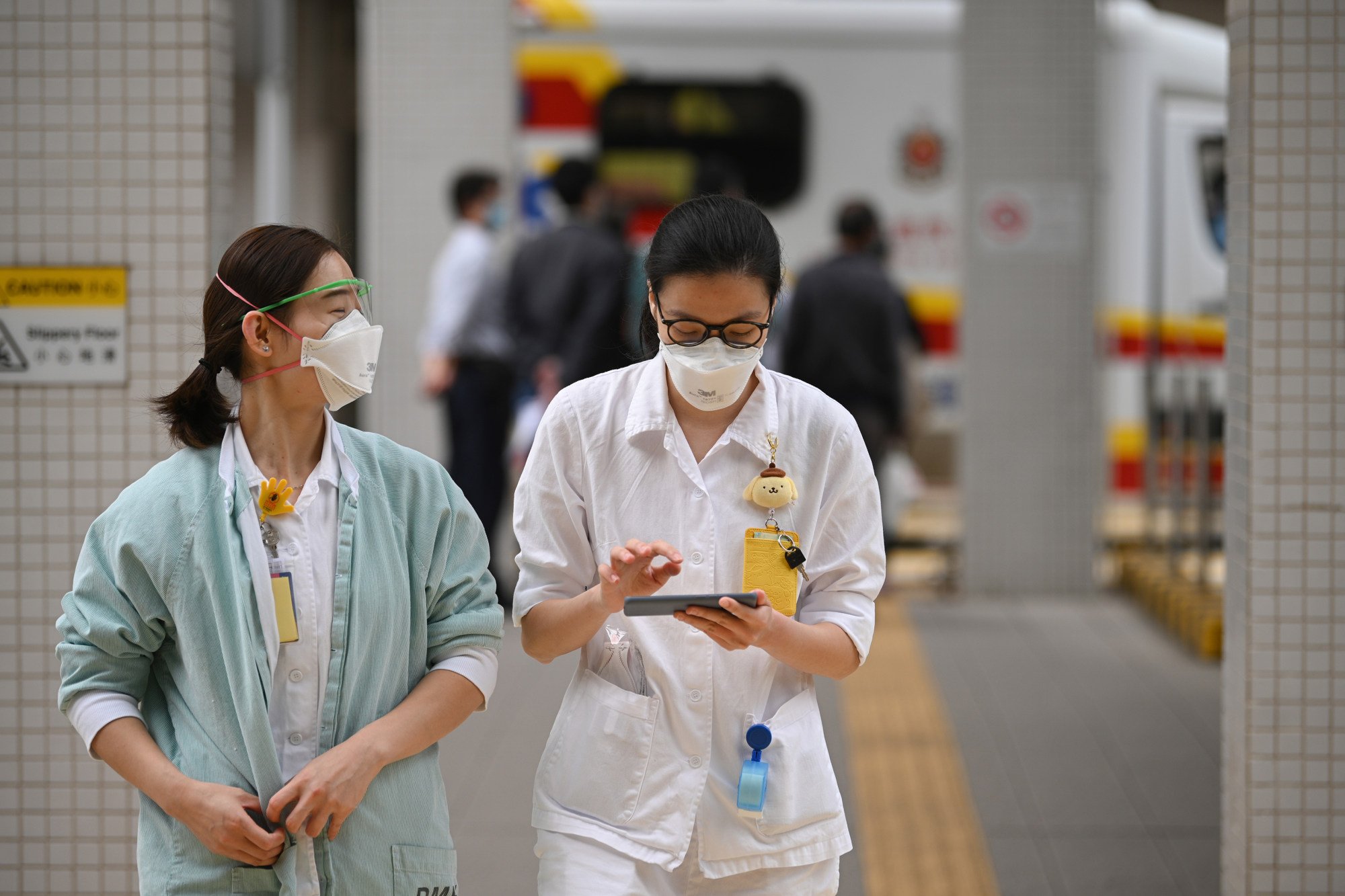
The number of medical students in city has more than doubled over the past 18 years. Photo: AFP
“They must know how to communicate with Hong Kong patients in order to teach clinical medicine, that’s why it’s difficult to hire,” he said.
He also warned that the impact of the government’s special registration scheme for overseas-trained doctors was not yet clear.
So far only 30 have been registered, including some who had already been practising in Hong Kong for some years, but the scheme was only in its first year.
He said if many doctors chose to come to Hong Kong this way and there was also a third medical school, “we would be in trouble” because once the new facility had opened, there would be no turning back.
HKUST council member Chen acknowledged that opening a medical school was a big commitment and financing was a major issue.
While the university had not revealed how much would be needed, he said the preliminary plan was to first dip into its reserves, then raise funds, before seeking funding from the University Grants Committee.
If the plan went ahead, Sung suggested that HKUST include artificial intelligence (AI) as part of its curriculum and teaching as it was emerging in a big way in the medical and healthcare industry.
“AI can replace some tedious or repetitive tasks of doctors,” he said. “The development of AI in interpreting medical imaging for diagnosis is quite mature.”
But striking a balance between harnessing technology and traditional teaching approaches could be a challenge for the new school, Sung warned.
“Let’s not forget that medicine is not just about technology. It is also a people-oriented and service-providing profession,” he said. “We should not dismiss the part about humanity, or students may become ‘robot-doc’.”
News Related-
Hong Kong district council election: unsuccessful poll contenders not in the running for appointed seats under revamped system, minister says
-
Hong Kong police to recruit 137 city students from mainland Chinese universities following year-long talent attraction drive
-
Hong Kong primary school pupils may not need to sit written tests, exams in new humanities subject, education minister says
-
COP28: To cut carbon, Hong Kong must first learn to put a price on it
-
Hongkongers in subdivided flats offered health checks, support from social workers under scheme by Jockey Club, local university
-
Operation Santa Claus: Hong Kong centre helps ethnic minority children with special needs get on track
-
Why Hong Kong must adopt nature-based solutions in the Northern Metropolis
-
‘Time travel’ tourism in Hong Kong – could it be the boost the city needs to attract more international visitors?
-
‘You have to adapt’: why Hongkongers living in UK feel move was worth it, despite less money and fewer friends
-
Red panda population at Hong Kong Ocean Park to increase, as more on the way from mainland China
-
Drug giant AstraZeneca to open Hong Kong R&D centre by late 2024 at earliest with focus on cell and gene therapies
-
Hong Kong government pilots fly into eye of typhoons to better understand their secrets
-
Hong Kong’s Cathay Pacific expects first annual profit in 4 years, passenger numbers to reach 95% of pre-pandemic levels
-
How Hong Kong will benefit from a more diverse civil service
